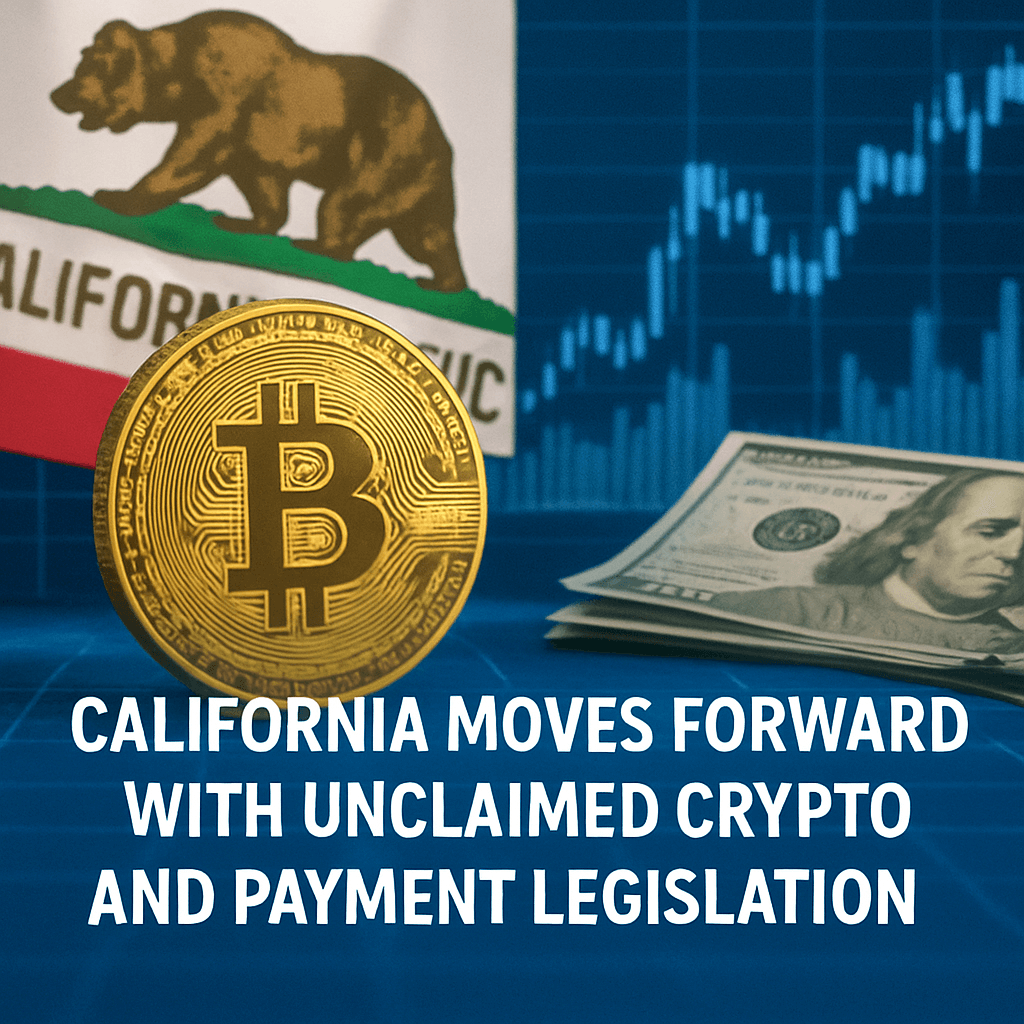California Moves Forward with Unclaimed Crypto and Payment Legislation


The California legislature has moved forward with a bill focused on the management of unclaimed cryptocurrency. This legislative effort aims to revise existing unclaimed property laws, providing a clear framework for the handling of digital assets not accessed by their owners over an extended period. As defined in California’s existing laws, unclaimed property is generally defined as property that has remained dormant for a certain duration, typically three years, prompting the state to step in and take ownership.
Overview of the Proposed Changes
Under the new bill, cryptocurrencies that remain unclaimed will no longer be liquidated by the state automatically. Eric Peterson from the Satoshi Action Fund articulated that the primary goal of this update is to prevent the premature liquidation of cryptocurrency assets, which could undermine their value and discourage further innovation in the sector.
- Establishment of clearer definitions for unclaimed cryptocurrency and protocols for handling such assets.
- Requirements for private parties holding unclaimed assets to report them and potentially hand them over to state authorities.
- Provisions for holders of cryptocurrencies to reclaim their assets within a designated timeframe after initial dormancy is established.
Implications for Cryptocurrency Holders and Merchants
The implications of this legislation can be extensive for both cryptocurrency holders and merchants. For individuals, the ability to retain ownership of their dormant cryptocurrency assets without the fear of unwarranted state intervention presents a new layer of protection. Additionally, by not automatically liquidating these assets, there remains an opportunity for holders to recover their investments should they decide to engage with their accounts again.
On the merchant side, the legislation could signal a shift in how digital currencies are recognized. Merchants who accept cryptocurrency as a form of payment may find a more stable and clearly defined landscape that can facilitate transactions without the risk of immediate devaluation. This development also speaks to the increasing acceptance of digital assets in everyday commerce.
Controversies and Public Response
While the bill has garnered support, there are also voices of dissent. Critics argue that the legal ambiguity surrounding cryptocurrencies hampers effective regulation. There is concern that without a stringent framework, the potential for fraud and misuse increases when the state steps in to manage assets that are often volatile and difficult to value. However, proponents like Peterson emphasize that updating the laws is an essential step in acknowledging the digital economy.
Connecting with Broader Trends in Crypto Regulation
This legislative move comes at a time of heightened scrutiny on cryptocurrency regulations at both the state and federal levels in the United States. For example, the Securities and Exchange Commission (SEC) has been active in pursuing enforcement actions against unregistered tokens that resemble securities. The evolving nature of regulatory frameworks serves both consumers and businesses as they navigate the rapidly changing landscape of digital currencies.
Conclusion
In summary, California’s progress on the unclaimed cryptocurrency legislation represents a crucial step toward reconciling traditional financial norms with modern digital asset realities. As cryptocurrency adoption continues to rise, the importance of regulatory clarity and consumer protection will become increasingly significant. Stakeholders across the financial spectrum will need to engage in ongoing dialogue to ensure that the evolving legislative landscape appropriately addresses the needs of a diversified economy.
Stay updated on the implications of cryptocurrency legislation as this story develops.